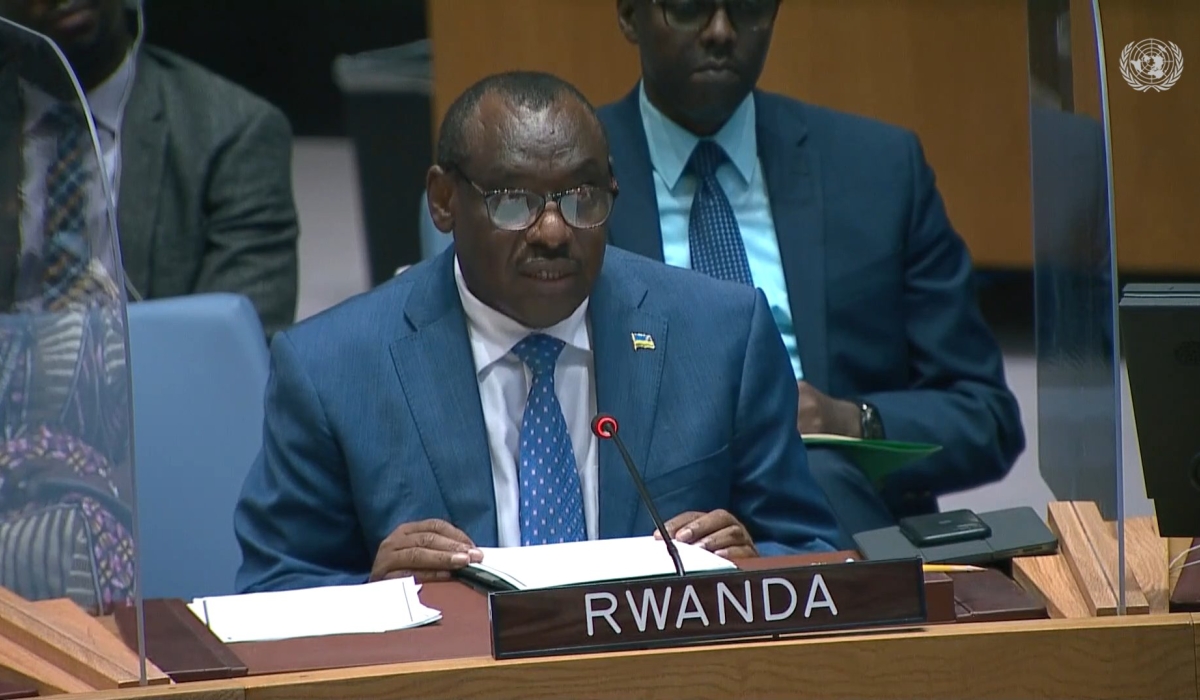Rwanda has expressed disappointment over the omission of FDLR, a genocidal force, from a UN report naming violent groups that are committing the most atrocious acts in eastern DR Congo.
This was during a briefing of the UN Security Council on the situation in DR Congo, where a report on MONUSCO, the UN peacekeeping mission in the country, failed to recognize FDLR as one of the most dangerous armed groups in eastern DR Congo.
While addressing the council, Claver Gatete, Rwanda’s permanent representative at the United Nations said that the MONUSCO report inexplicably omits FDLR despite the fact that it is the main orchestrator of the instability in Eastern DRC.
“The FDLR militia stands out from the 120+ armed groups operating in Eastern Congo on three counts: its military expertise, an extensive economic network, and the unwavering support it enjoys fighting alongside the Congolese army–FARDC,” Gatete told the meeting.
FDLR was created by remnants of military officers and members of the Interahamwe militia responsible for the 1994 against the Tutsi.
They fled into DR Congo following their defeat in Rwanda and exported their genocidal agenda where they continue to regroup and have made periodical incursions into Rwanda, killing innocent citizens.
Previously, numerous reports, including some by UN organs, have linked FDLR to perpetrating violence in DR Congo, and have recently been co-opted to fight alongside Congolese government forces in their fight against M23, another armed group.
Gatete expressed disappointment in the lack of a statement from the council or the mission condemning the ongoing acts of genocide targeting Congolese Tutsi and Rwandaphones, which he said happen on a daily basis.
“The proliferation of hate speech and anti-Tutsi genocide ideology widely observed in the neighbouring country today, reveals the extent of FDLR’s reach.”
According to Gatete, DR Congo’s choice to integrate FDLR within government forces instead of repatriating them sends a strong and clear message to Rwanda, the region, and the international community that it is not interested in peace.
The EAC is advancing on mechanisms aimed at restoring peace in the region, particularly the Nairobi and Luanda processes, however, they are continuously faced with inaction from the Kinshasa government, he added.
“The security challenges in our region are complex, but they are also solvable. Amplifying the false allegations of DR Congo while never holding it accountable for allying itself with armed groups, which along with FARDC commit serious human rights abuses against civilians cannot lead to solutions.”
He told the council that treating the DR Congo government as the perpetual victim despite evidence to the contrary is symbolic of how the dysfunction in the country has been encouraged and sustained for decades.
“As long as Kinshasa backs the genocidal FDLR and other anti-Rwanda elements, Rwanda’s defensive and preventive mechanisms will remain in place to guard against violations of our borders and airspace, and counter any spill-over into Rwanda to ensure total security for our territory.”
Gatete called upon the Human Rights Commission to investigate these crimes and take appropriate action, adding that efforts should be made to strengthen legal frameworks that address hate speech and ensure accountability for those who engage in such behavior







